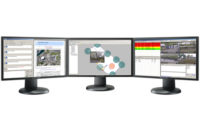You can’t count on anything these days. Federal, state and local gasoline taxes. Fights over drilling and pipelines. What about the Strait of Hormuz and those volatile Iranians? Hurricanes and exploding sea oil rigs. Winter blends and summer blends. Speculators gaming the oil industry.
So it is not surprising that there are emerging elements that may help or harm, too.
Insurance firms are slowly but surely embracing vehicle telematics.
The number of global insurance telematics users will grow at a rate of 90 percent from 1.85 million in 2010 to 89 million in 2017, according to ABI Research of Oyster Bay, N.Y.
Dominique Bonte, group director, telematics and navigation, comments, “While insurance telematics or use based insurance (UBI) is far from a recent phenomenon – U.S.-based Progressive was already trialing solutions back in 2002, a renewed interest in this market has occurred over the past two years, with an acceleration in uptake, as well as a dramatic change in the very nature of UBI, migrating from pay as you drive to pay how you drive based on continuous driver behavior monitoring and analysis.”
Such a migration encouraged by UBI could help disciplined security fleet owners, who have educated drivers and telematics systems. The can easily provide their insurance carrier the information it needed for better rates.
But what about the vehicles themselves?
Hybrids have been on the market for many years; but 2011 was significant for the introduction of the first plug-in and all-electric vehicles from major manufacturers, along with promises of more this year. While this will not lead to a major shift away from conventionally-powered vehicles, there will be steady growth over the next eight years.
“More competition is always good for sales, and as these vehicles become better known as mainstream products, both production efficiencies and demand will improve,” says ABI Research principal analyst David Alexander. “However, gasoline and diesel engine technology is not standing still and more efficient conventional solutions will not make it easier for [the alternative] producers.”
Still, as compared to consumer buyers who may wish to take a beating on buying one hybrid or all-electric, security fleet owners have a tougher set of mathematics.
Then there are vehicles running on compressed natural gas or CNG.
Although there are numerous manufacturers that offer factory-built natural gas trucks, step-vans, transit buses and school buses, there are fewer options for those who want light-duty cars, vans and pickup trucks. One is the Civic GX from Honda, which markets it as a fleet vehicle to a degree. And many states have federal vehicle tax credits in place to provide incentives for drivers to purchase CNG vehicles or to convert their vehicles, if it's one of the limited number that qualify, to run on CNG fuel.
On a more traditional basis, car, van and truck manufacturers continue to improve their miles per gallon success but may be slowed by a political dialog concerning government regulations, business needs and the ongoing debate over global warming.










